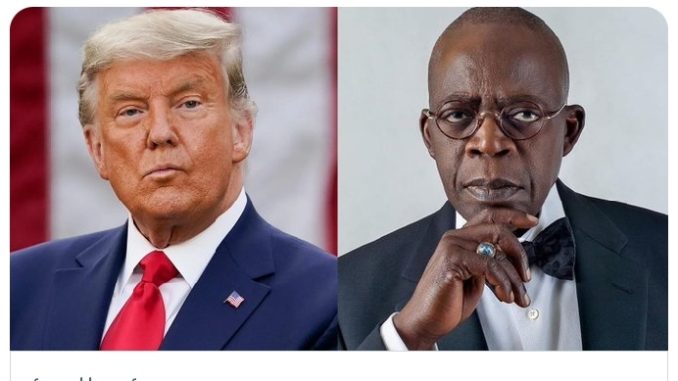
The Donald Trump administration has moved to impose a $15,000 bond on U.S. visa applications from countries identified for poor databases and high rates of visa overstays under a 12-month pilot programme announced by the State Department on Monday.
Starting August 20, foreigners seeking to travel to the U.S. for business or tourism purposes must deposit a bond between $5,000 and $15,000 to ensure they depart before their visas expire.
Affected foreign nationals, including individuals who acquired “citizenship by investments without a residency requirement”, will travel from designated airports participating in the programme, the State Department spokesperson said in a statement on Monday.
Those who violate the rule will forfeit their deposit, while compliant travelers will receive a refund, according to the Federal Register notice.
The notice, which has not been released to the nations affected, described the bond as “a key pillar of the Trump administration’s foreign policy to protect the United States from the clear national security threat posed by visa overstays and deficient screening and vetting.”
“Countries will be identified based on high overstay rates, screening and vetting deficiencies, concerns regarding acquisition of citizenship by investment without a residency requirement, and foreign policy considerations,” stated the Department spokesperson.
Although only a fraction of Nigerians overstay their visas, with figures ranging between five and seven per cent annually, the West African nation may still be affected by the new bond deposit due to its poor database.
On Monday, the Trump administration through the U.S. Mission in Nigeria announced plans to revoke the visas of Nigerian students who skip classes or abandon school without informing the appropriate authorities.
In July, the U.S. embassy stated that Nigeria’s security systems were too weak, asserting that the nation’s technical benchmark did not meet global standards. The embassy cited the nation’s poor database as the reason for slashing multiple-entry five-year visas to single-entry three-month visas.
“This reduction is not the result of any nation’s stance on third-country deportees, introduction of e-visa policies, or affiliations with groups like BRICS,” stated the U.S. Mission in Nigeria on July 11. “The reduction in validity is part of an ongoing global review of the use of U.S. visas by other countries using technical and security benchmarks to safeguard U.S. immigration systems.”
Leave a Reply